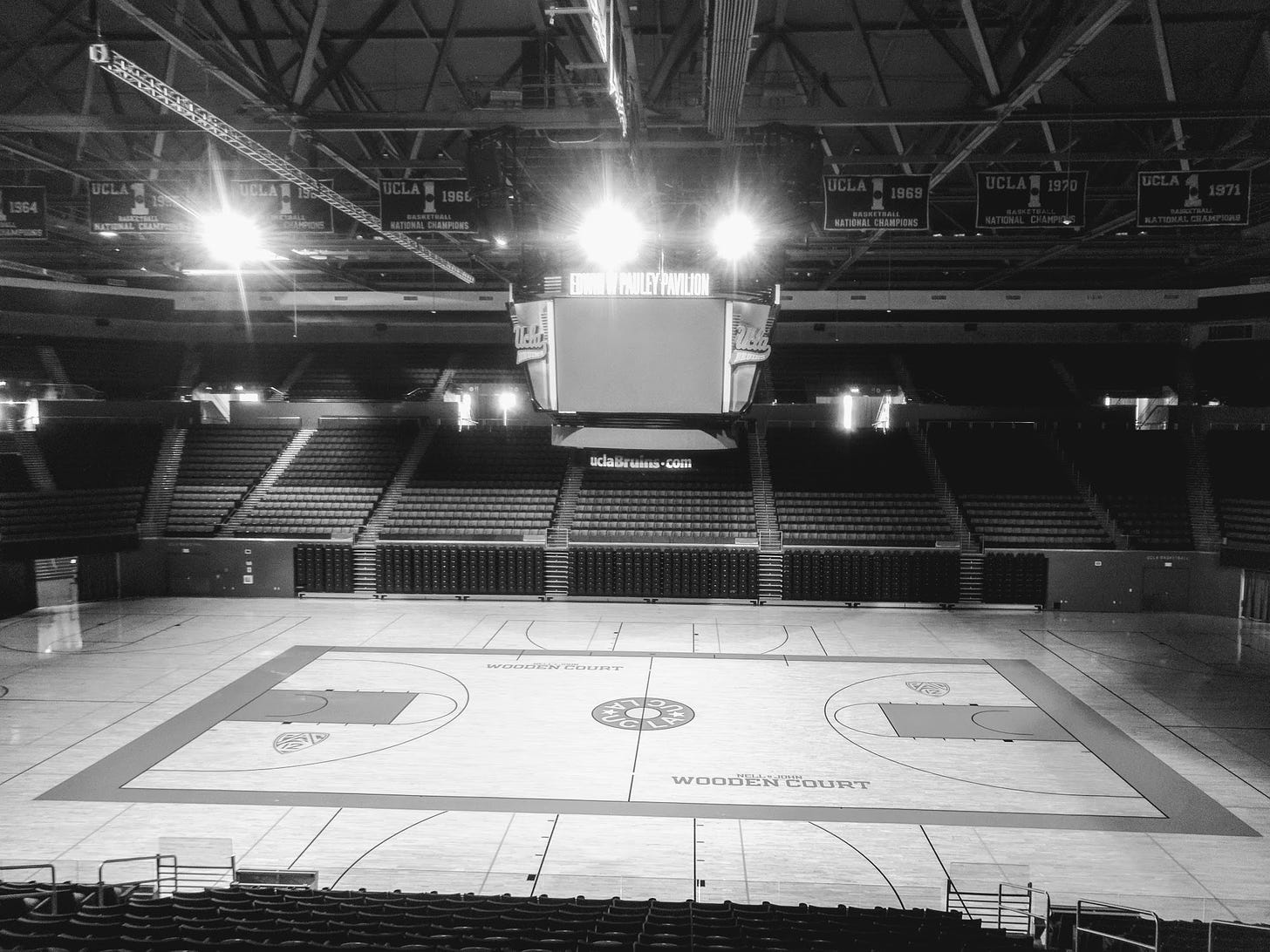From the outside, things appeared to be perfect in Westwood in the early 1970s.
The UCLA Bruins were in the midst of winning seven straight national championships, and Coach John Wooden had cemented his legacy as the greatest college basketball coach ever.
But not everyone was happy. Andy Hill had been named co-MVP of the Bruins freshman team and had dreams of becoming the next Gail Goodrich. But the ensuing three years proved not to be full of excitement and celebration but of pain and resentment.
“I pretty much sat and watched as we went 87-3 and won three national championships. No one ever missed a game. It was all very disappointing,” Hill said.
In the years that followed, Hill distanced himself from the program and from his legendary coach — harboring a bitter grudge that would last more than two decades.
During this period, he went on to renowned success as a TV executive, eventually landing as president of CBS productions. He oversaw shows including “Touched by an Angel,” “Dr. Quinn, Medicine Woman” and “Walker, Texas Ranger.”
“What I was good at was getting a lot of people to focus on the same thing and work together as a group,” Hill said. “What I had done well in the entertainment business were things Coach had taught me. I felt like I had to put to rest that ridiculous sense of failure I had.”
So, in 1996, after years of internal debate, Hill decided to pick up the phone and call Wooden.
“I said, ‘Hi, this is Andy Hill.’
“He said, ‘Where ARE YOU?’ in this challenging tone. I thought, ‘Oh man, I’m back in practice. I screwed up again.’
“Then, he totally changed tone and what I heard was this warm, inviting guy say, ‘Andy, I’d really love to see you. When are you going to come see your old coach?’”
Hill and Wooden finally re-united and forged a close bond in the years to come. They’d go to the movies together, to games, to the park. They eventually co-authored The New York Times best-seller “Be Quick - But Don’t Hurry,” and when Wooden was awarded the Presidential Medal of Freedom in 2003, he asked Hill to be by his side.
At one point or another, almost all of us will have a dramatic confrontation with someone. Too often, we dig in deeper and refuse to give an inch out of pure stubbornness and a refusal to show weakness.
Hill said it’s those times in particular when it’s most important to make amends.
“The less you want to do it, the more you should,” he said. “There have to be a lot of reasons and emotions you’ve hung onto if you don’t want to. I didn’t want to call him, but I knew I had to put an end to it.
“Of all the things I’ve done in my life, picking up that phone was among the best.”







